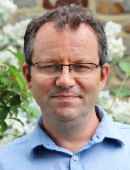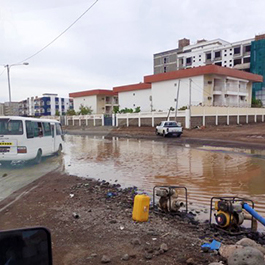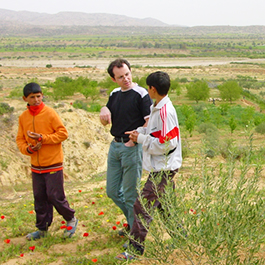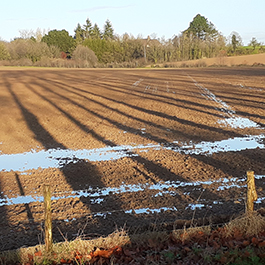|
| Professor at l'Institut Agro Phone: (+33) 2 23 48 50 00 Email: christophe.cudennec@institut-agro.fr Address: Institut Agro, UMR SAS, 65 rue de St-Brieuc, CS 84215, 35042 Rennes Cedex, France Fields of expertise: Hydrology, Hydrometeorology, Hydroclimate, Integrated management, Foresight Keywords: Water, agriculture, environment, Anthropocene, Change, Risks, Development, Transition, Geopolitics, Open science, International cooperation, Capacity development |
Activities
Christophe Cudennec has 30 years of experience in hydrology and management of related resources, demands, territories, risks and interfaces across a variety of hydroclimate and geographic settings.
He holds a degree in Agronomic Engineering, specialized in socio-agro-ecosystems, a Ph.D. and an Habilitation in hydrology. He is currently a Professor, a coordinator of education in hydrology and in risk and crisis management, and correspondent for the multi-university Master’s degree in water sciences in Rennes. He has been dean of e-education for more than 9 years, and vice-dean of the department of environment-landscape-territory.
Prior to this, he had extensive international experience, including 1.5 years in Iceland, 3.5 years in Tunisia and research/capacity-building projects in many regions throughout the world. Over 2011-2023, he has served as the Secretary General of the IAHS – the International Association of Hydrological Sciences (www.iahs.info) – (and is now Vice President) facilitating worldwide scientific cooperation, knowledge exchange and outreach, and interacting with various local-to-international, UN (UNESCO, WMO, UN Water) and World Bank programs and policy processes.
Productions
All on academic accounts: ResearchGate / Google Scholar / HAL
Selection of recent articles:
Cudennec C. et al. (Ed.), 2024, in press. Hydrological sciences in the Anthropocene. Vol 1: Past and future of open, inclusive, innovative, and society-interfacing approaches and Vol 2: Variability and change across space, time, extremes, and interfaces. PIAHS, https://www.proceedings-iahs.net/
Buytaert W. et al., 2023. Chapter 9 - Education and capacity development. The United Nations World Water Development Report 2023 'Partnerships and cooperation for water', 142-147, https://www.unwater.org/publications/un-world-water-development-report-2023
Buytaert W. et al., 2023. Chapter 11 - Innovation. The United Nations World Water Development Report 2023 'Partnerships and cooperation for water', 157-161, https://www.unwater.org/publications/un-world-water-development-report-2023
Koeppel S. et al., 2023. Chapter 7 - Climate change. The United Nations World Water Development Report 2023 'Partnerships and cooperation for water', 103-114, https://www.unwater.org/publications/un-world-water-development-report-2023
Cudennec C., Sud M., Boulton G., 2022. Governing Open Science, Hydrological Sciences Journal, https://doi.org/10.1080/02626667.2022.2086462
Cudennec C., Lins H., Uhlenbrook S., Amani A., Arheimer B., 2022. Operational, epistemic and ethical value chaining of hydrological data to knowledge and services: a watershed moment, Hydrological Sciences Journal, https://doi.org/10.1080/02626667.2022.2150380
Dallery D., Squividant H., de Lavenne A., Launay J., Cudennec C., 2022. An end user friendly hydrological Web Service for hydrograph Prediction in Ungauged Basins. Hydrological Sciences Journal, https://doi.org/10.1080/02626667.2020.1797045
de Lavenne A., Loree T., Squividant H., Cudennec C., 2022. The transfR toolbox for transferring observed streamflow series to ungauged basins based on their hydrogeomorphology. Environmental Modelling and Software, http://dx.doi.org/10.1016/j.envsoft.2022.105562
Nardi F., Cudennec C. et al., 2022. Citizens AND HYdrology (CANDHY): conceptualizing a transdisciplinary framework for citizen science addressing hydrological challenges, Hydrological Sciences Journal, https://doi.org/10.1080/02626667.2020.1849707
Soares A., Cudennec C., Ben Bih K., Takahashi R., 2022. Strengthening hydromet and early warning systems and services in Tunisia – A road map / Same in Djibouti. World Bank.
Amoussou E., Mahé G., Amrouni O., Bodian A., Cudennec C., Dietrich S., Kodja S.D., Vissin W.E. (Ed.), 2021. Hydrology of Large River Basins of Africa. PIAHS, Vol. 384, https://piahs.copernicus.org/articles/384/index.html
de Souza et al., 2021. Chapter 5 – Food and agriculture. The United Nations World Water Development Report 2021 ‘Valuing water’, 67-78, https://www.unwater.org/publications/un-world-water-development-report-2021/
Cudennec C., Lins H., Uhlenbrook S., Arheimer B., 2020. Towards FAIR and SQUARE hydrological data. Hydrological Sciences Journal, https://doi.org/10.1080/02626667.2020.1739397
Dixon H., Sandström S., Cudennec C., Lins H., Abrate T., Bérod D., Chernov I., Ravalitera N., Sighomnou D., Teichert F., 2020. Intergovernmental cooperation for hydrometry – what, why, how? Hydrological Sciences Journal, https://doi.org/10.1080/02626667.2020.1764569
Yu Z. et al. (Ed.), 2020. Hydrological processes and water security in a changing world. PIAHS, Vol. 383, https://piahs.copernicus.org/articles/383/index.html
Blöschl G., Bierkens M.F.P, Chambel A., Cudennec C., Destouni G., Fiori A., Kirchner J., McDonnell J., Savenije H.H.G., Sivapalan M., Stumpp C., Toth E., Volpi E et al., 2019. Twenty-three Unsolved Problems in Hydrology (UPH) – a community perspective. Hydrological Sciences Journal, https://doi.org/10.1080/02626667.2019.1620507
de Lavenne A., Cudennec C., 2019. Assessment of freshwater discharge into a coastal bay through multi-basin ensemble hydrological modelling. Science of the Total Environment, https://doi.org/10.1016/j.scitotenv.2019.02.387
Di Baldassarre G., Sivapalan M., Rusca., Cudennec C., Garcia M., Kreibich H., Konar M., Mondino E., Mård J., Pande S., Sanderson M.R., Tian F., Viglione A., Wei J., Wei Y., Yu D.J., Srinivasan V., Blöschl G., 2019. Socio-hydrology: Scientific challenges in addressing the sustainable development goals. Water Resources Research, https://doi.org/10.1029/2018WR023901.
Ecrepont S., Cudennec C., Anctil F., Jaffrézic A., 2019. PUB in Québec: A robust geomorphology-based deconvolution-reconvolution framework for the spatial transposition of hydrographs. Journal of Hydrology, https://doi.org/10.1016/j.jhydrol.2018.12.052
Aouissi J., Benabdallah S., Lili Chabaâne Z., Cudennec C., 2018. Valuing scarce observation of rainfall variability with flexible semi-distributed hydrological modelling – Mountainous Mediterranean context. Science of the Total Environment, https://doi.org/10.1016/j.scitotenv.2018.06.086.
Boudhraâ H., Cudennec C., Andrieu H., Slimani M., 2018. Net rainfall estimation by the inversion of a geomorphology-based transfer function and discharge deconvolution. Hyrdological Sciences Journal, http://dx.doi.org/10.1080/02626667.2018.1425801.
Tauro F. et al., 2018. Measurements and observations in the XXI century (MOXXI): innovation and multi-disciplinarity to sense the hydrological cycle. Hydrological Sciences Journal, http://dx.doi.org/10.1080/02626667.2017.1420191
Bai X. et al., 2016. Plausible and desirable futures in the Anthropocene: A new research agenda. Global Environmental Change, https://doi.org/10.1016/j.gloenvcha.2015.09.017
Brondizio E. et al., 2016. Re-conceptualizing the Anthropocene: A call for collaboration. Global Environmental Change, https://doi.org/10.1016/j.gloenvcha.2016.02.006
Ceola S. et al., 2016. Adaptation of water resources systems to changing society and environment: a statement by the International Association of Hydrological Sciences, Hydrological Sciences Journal, https://doi.org/10.1080/02626667.2016.1230674






